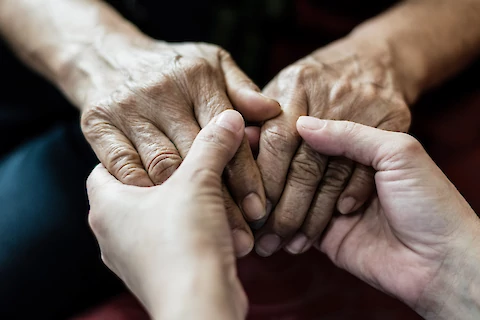
For seniors living with Parkinson's disease, maintaining independence throughout the course of the condition can be difficult. Each day presents unique challenges that require patience and understanding from family and care providers. Here are five common daily struggles with advanced Parkinson's disease and how to help with each one.
1. Difficulty with Mobility
Daily routines may become more difficult with advanced Parkinson's disease. Moving around the house, getting dressed, and doing basic tasks can be extremely challenging due to slow movement and weakened muscles.
How to Help Seniors with Their Mobility Issues
Physical exercise helps improve mobility and enhance strength. There are a variety of assistive devices such as walkers, canes, and wheelchairs to ensure ease in daily activities. Extra attention to safe movement and help in transitioning from one activity to another is also essential for those with Parkinson's disease.
2. Speech and Swallowing Difficulties
As Parkinson's disease progresses, speech and swallowing can become increasingly difficult. Slower movement of the tongue and throat muscles can cause articulation problems when speaking. Swallowing difficulties may also lead to choking or inhaling food, which could ultimately lead to pneumonia or other respiratory illnesses.
How to Assist Seniors with Speech and Swallowing Struggles
Speech therapy techniques, such as using posture while speaking and utilizing simpler sentence structures, will help improve communication abilities over time. Exercises in tongue stretching are helpful in reducing discomfort while eating. Ensuring that meals are cut into small pieces with thickened liquids may also prevent issues related to food intake.
3. Cognitive Decline
Parkinson's disease includes changes associated with cognitive difficulties. Memory or perception-related issues can occur and make it difficult to remember things, think clearly, or recall details.
How to Aid Seniors Who Are Declining Cognitively
Reminding seniors about their daily routines helps keep them on track. Reducing distractions in their environment will help focus their attention. Visual notes may also be used for those experiencing memory issues.
4. Sleep Struggles
Sleep disturbances, such as insomnia or excessive daytime sleepiness, are a common experience for those living with advanced Parkinson's disease. This can lead to an increased sense of confusion and irritability during waking hours.
How to Help Seniors Achieve Better Sleep
Reducing stress levels and creating a calming environment at bedtime help promote more restful behavior. Light physical activity during the day may also contribute positively towards improved nocturnal habits. For those experiencing severe difficulty sleeping, it is important to consult with your doctor on how best to address this issue with medications or other therapies that may be available.
5. Anxiety and Depression
With advancing Parkinson’s disease, frustration and anxiety can rise due to being more reliant on others for help. In turn, this can lead to developing feelings of sadness or even depression.
How to Ease Anxiety and Depression Symptoms in Seniors
Encouraging seniors with Parkinson’s disease to participate in activities they enjoy can be a great way to boost endorphin levels while reducing stressors throughout the day. Increasing social contact will also provide them comfort during difficult moments.
Pet therapy has also been known as a helpful intervention when dealing with mental health issues stemming from Parkinson's disease. Lastly, seeking out medical advice is essential in addressing any recurring symptoms of anxiety or depression that may arise.
Reach Out to Senior Helpers Havertown
If you are in need of skilled in-home care for a senior loved one living with advanced Parkinson's disease residing in Havertown, Media, Newtown Square, Ambler, Glenside, or Montgomery County, reach out to Senior Helpers Havertown today. Our experienced professionals will provide your family with the comforting support and understanding needed for seniors as they face the challenges that come along with this condition. Let us give you peace of mind knowing your loved one is safe and their daily needs are met throughout each stage of Parkinson’s disease.